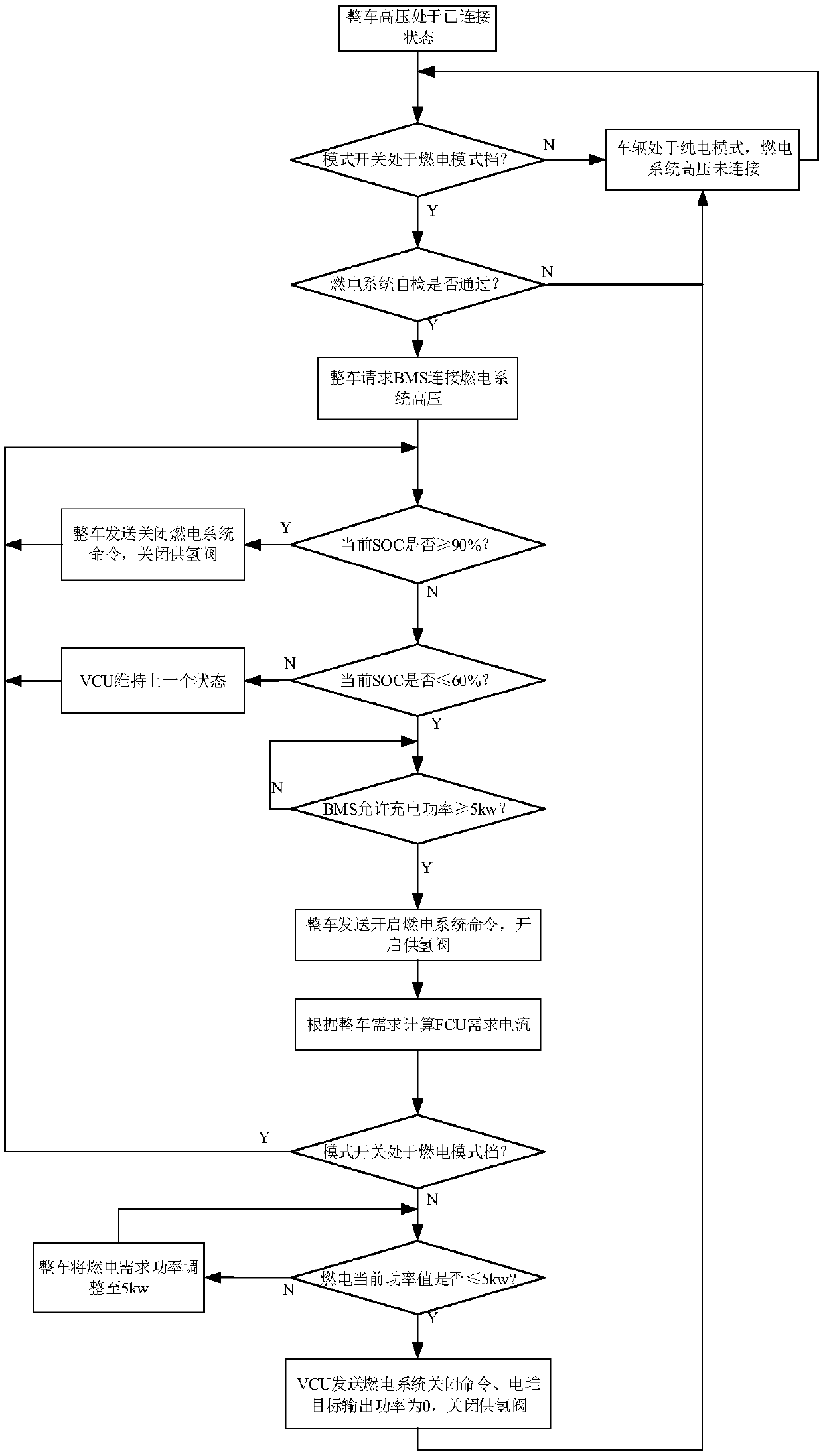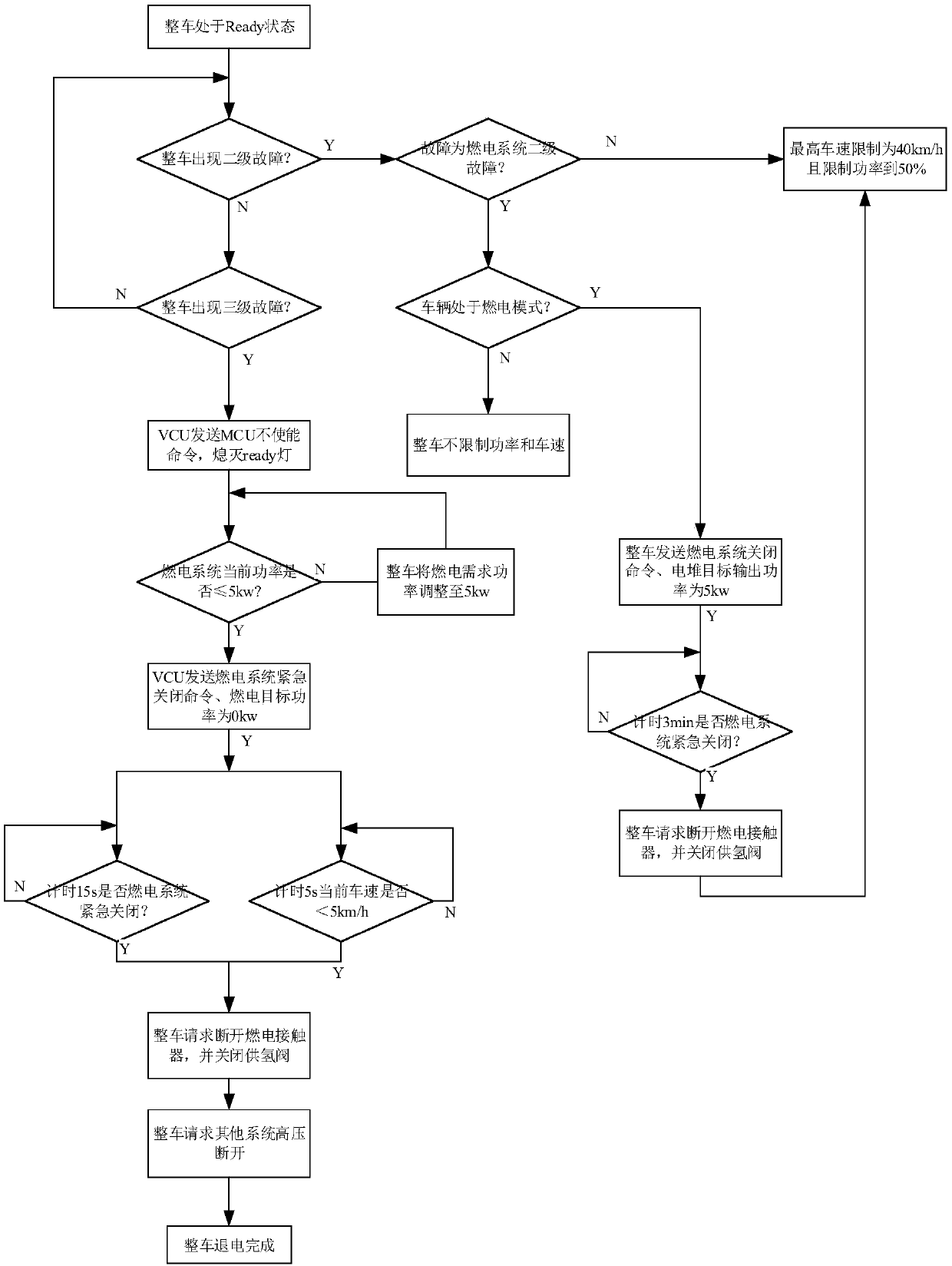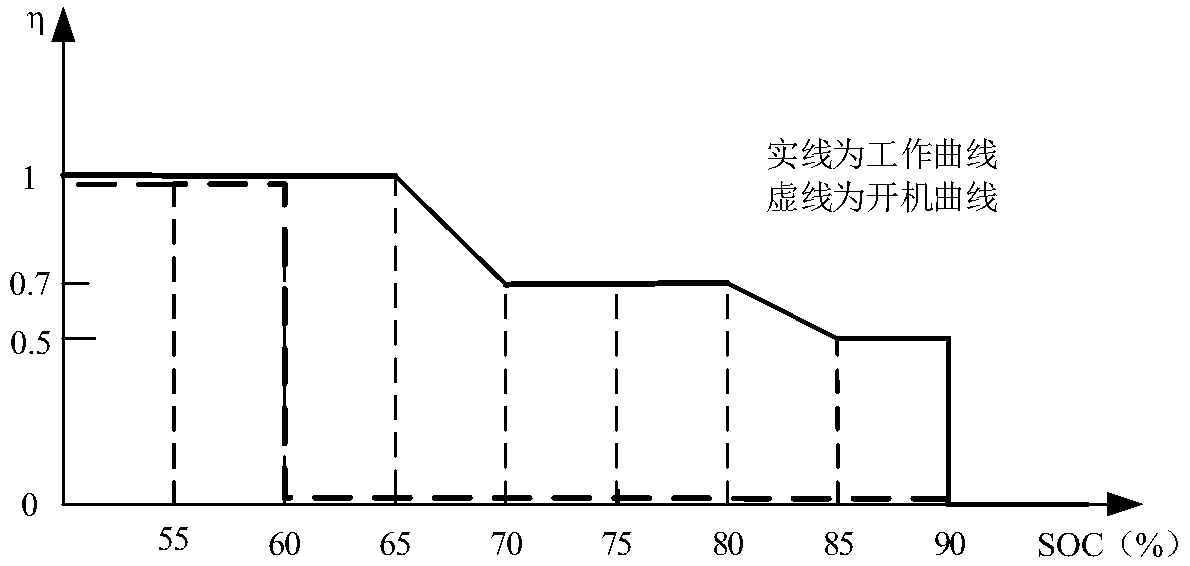Control method of fuel cell hybrid vehicle
A control method and fuel cell technology, applied in the field of fuel cell hybrid vehicles, can solve the problems of frequent start and stop of fuel cell systems, attenuation of stack service life, and difference in braking experience of the whole vehicle, so as to avoid electric shock damage and prolong use. Longevity and the effect of improving operating efficiency
- Summary
- Abstract
- Description
- Claims
- Application Information
AI Technical Summary
Problems solved by technology
Method used
Image
Examples
Embodiment 1
[0056] Embodiment 1 Vehicle Mode Management
[0057] Such as figure 1 As shown, after the vehicle completes the high-voltage action (that is, the main positive contactor and the main negative contactor of the power battery have been closed), the vehicle controller judges the gear of the vehicle mode switch. If the mode switch is in the pure electric mode gear, then The whole vehicle enters "pure electric mode", and the high voltage of the gas-electric system is not connected at this time; when the mode switch is in the gear of the gas-electric mode, the vehicle controller continues to judge whether the self-test status of the gas-electric system is passed, if the self-test status is not passed Then the whole vehicle is still in the "pure electric mode", and the high voltage of the gas-electric system is not connected; In this mode, if the SOC of the power battery is ≥ 90%, the start-up of the fuel-electric system of the whole vehicle is prohibited, and the whole vehicle is in...
Embodiment 2
[0058] Embodiment 2 Vehicle Troubleshooting
[0059] Each system module of the vehicle divides its own faults into three levels according to the severity of the impact of the fault state on the functional safety of the vehicle, and the third level of faults is the most serious fault (such as a motor temperature is too high a fault, a power battery voltage is too high a fault, etc. ), the whole vehicle must be powered off and the high-voltage connection disconnected, the whole vehicle of the failure level two is limited to the maximum speed and the system output power is reduced, and the whole vehicle of the failure level one is only given an alarm prompt. The classification of all faults in the fuel-fired power system is only fault-level one and fault-level two (the first-level faults of the fuel-fired power system include the first-level failure of the bottle mouth temperature is too high, the hydrogen high-pressure pressure is too high, the hydrogen concentration is too high,...
Embodiment 3
[0062] Embodiment 3 Calculation of the power of the fuel-fired power system:
[0063] According to the power battery SOC and the maximum allowable charging power of the battery, the vehicle can calculate the allowable fuel system output power P 1 and P 2 .
[0064] Such as image 3 As shown, after the vehicle enters the fuel-electric mode, when the SOC ≤ 60%, the vehicle is allowed to switch the fuel cell system from the off state to the on state, and the vehicle allows the fuel-electric system to output power coefficient η A0 Switch from 0 to 1. After the fuel-electric system is turned on, the whole vehicle restricts the power value of the fuel-electric system by stages according to the SOC value of the power battery. When SOC ≥ 90%, the allowable output power coefficient of the fuel system of the vehicle is η A1 =0; when 85%≤SOCA2 =0.5; when 80%≤SOCA3 =3.9-4×SOC, namely η Ax Linear smoothing from 0.5 to 0.7; when 70% ≤ SOC A4 =0.7; when 65%≤SOCA5 =4.9-6×SOC, namely η ...
PUM
 Login to View More
Login to View More Abstract
Description
Claims
Application Information
 Login to View More
Login to View More - R&D
- Intellectual Property
- Life Sciences
- Materials
- Tech Scout
- Unparalleled Data Quality
- Higher Quality Content
- 60% Fewer Hallucinations
Browse by: Latest US Patents, China's latest patents, Technical Efficacy Thesaurus, Application Domain, Technology Topic, Popular Technical Reports.
© 2025 PatSnap. All rights reserved.Legal|Privacy policy|Modern Slavery Act Transparency Statement|Sitemap|About US| Contact US: help@patsnap.com



